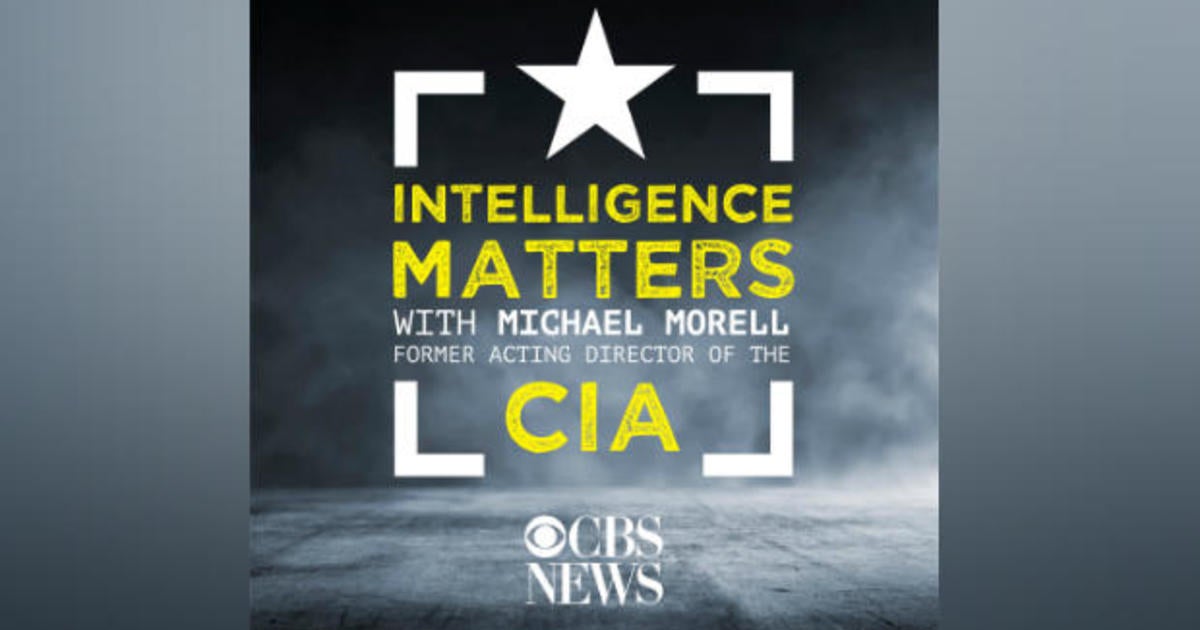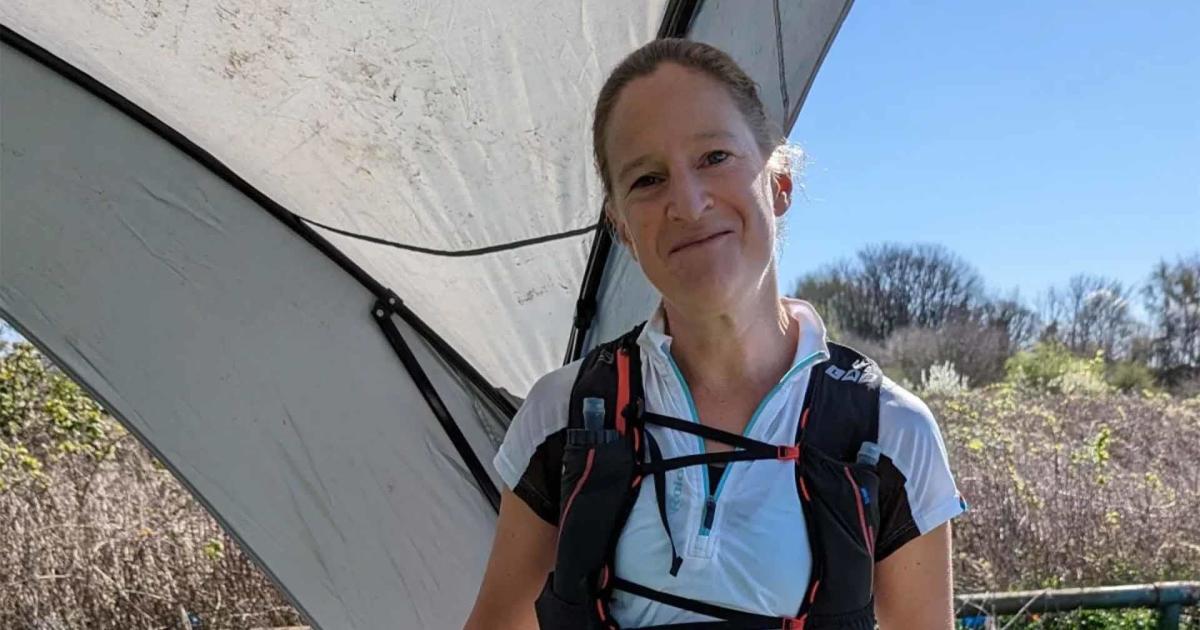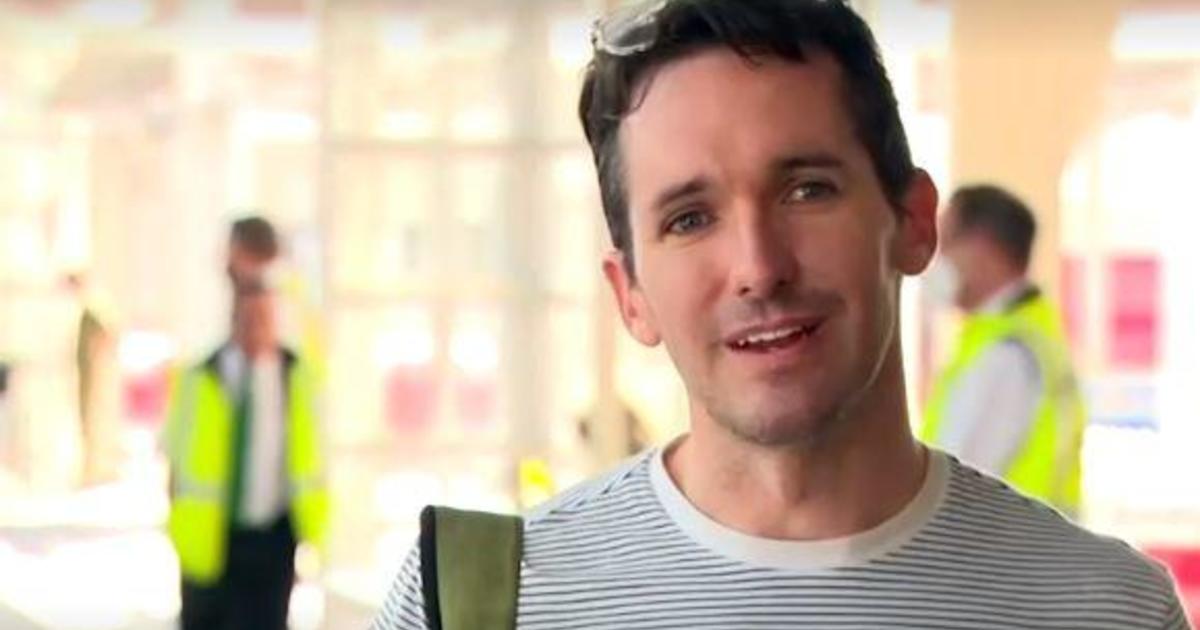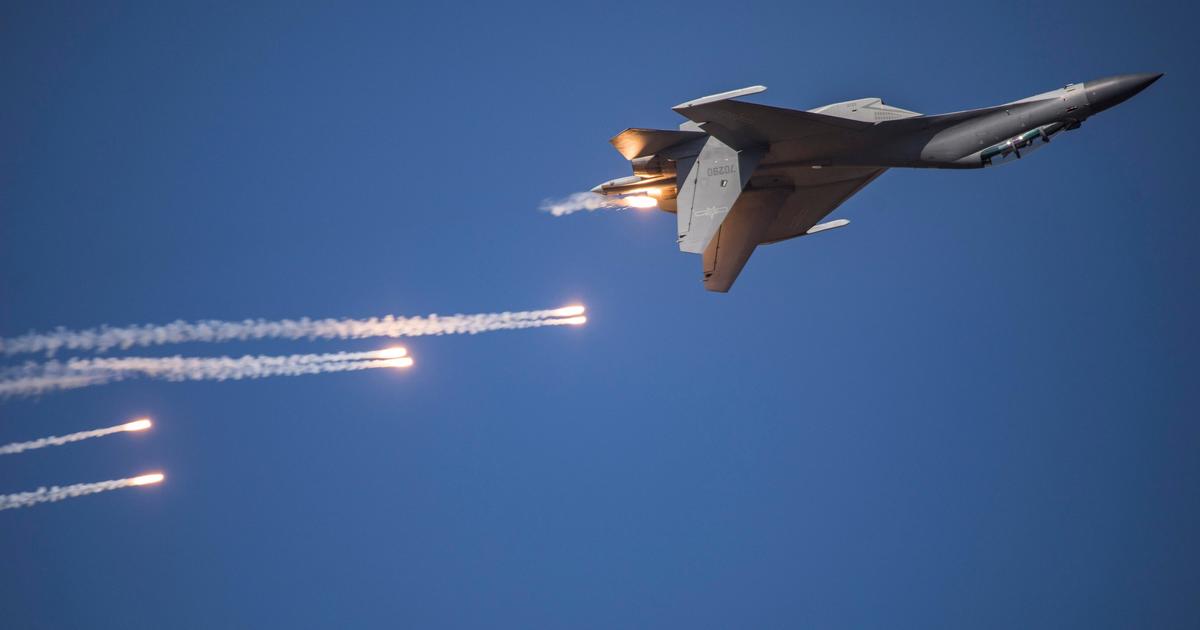[ad_1]
In this episode of Intelligence Matters, host Michael Morell interviews one of the world’s top intelligence officials from down under, Nick Warner. Warner has held senior positions in Australia’s diplomatic service, its defense ministry and intelligence services. He also served as the director of Australia’s equivalent to the CIA, the Australian Secret Intelligence Service, known as ASIS. Warner discusses the path he took to becoming a top intelligence official, the importance of the power of the trust, and being stranded in an Iranian desert.
Highlights
- On getting stranded in Iran: “We traveled a lot around Iran, and I was travelling with a friend one long weekend. And if you can imagine the layout of Iran, you go east about 170 kilometers, you come to a town on the main highway to Mashhad. So, a big four, six-lane highway. My friend and I decided that we would get off the highway on our four wheel drive and see what was down in the desert. Wasn’t the best decision that either of us ever made. Anyway, we drove for a few hours and the hard road turned into a dirt road which turned into a couple of tracks in the desert….”
- On his time as ASIS director: “These sorts of agencies attract the best and brightest. So great people with fantastic skill sets, real and broad interests, a dedication to the job… ASIS builds a very strong culture. Then there’s the great partnerships, including with the Five Eyes, with CIA, with 6 and a whole bunch of other services around the world in these jobs. As you know, Michael, better than I do, you can and you do make a real difference. And that real difference can be almost on a daily basis. It’s practical. It’s hands on. It’s exciting. It’s important.”
- On Australia’s relationship with the U.S.: “We’ve been working together. We’ve been fighting together. We’ve been sharing intelligence together for a very, very long time. In all of these relationships, you need trust, and I would argue that while the United States may have more important partners in a sense than Australia. You don’t have a more trusting partner and I would argue that is the case not only in the broader national security sense, it’s also true in the intelligence relationship.”
“Intelligence Matters” transcript: Nick Warner
Producer: Ariana Freeman
Photo provided by Nick Warner
MICHAEL MORELL: Nick, welcome to Intelligence Matters it’s a real honor for us to have you on the show.
NICK WARNER: Thanks so much it’s really good to talk to you from down here in Australia.
MICHAEL MORELL: You know, what’s interesting is we have a lot of listeners in Australia. In fact, when you look at the country breakdown we have after the US, Australia has more listeners than any other country in the world. So you’re going to be talking to some of your mates as well here.
NICK WARNER: I think that’s really interesting. I guess it shows how important the US is to Australia and to Australia’s security and the extraordinarily broad links and deep links between our two countries.
MICHAEL MORELL: And I think it’s a reflection of how many friends I have down there, too. So, Nick, you and I have had many conversations over the years, and I think it’s great that we’re able to share one of those with our listeners. So, I would love to start by asking you some questions about you and your background so our listeners can get a sense of who you are and I’d love to start by asking what got a young Nick Warner interested in the world and in foreign affairs.
NICK WARNER: OK, so Michael, my father was I was a journalist. He was he was a freelance foreign correspondent and a war correspondent and wrote a lot for us and and U.K. magazines and newspapers. He followed US forces through the Pacific during World War II, with General MacArthur, you know, from Guadalcanal to Bougainville to Saipan to the Philippines, bombing raids over Tokyo.
Then after World War II, he and my mother and my elder sister lived in Japan for a couple of years. So this is immediately after the war. And Dad worked on pretty much, I think, every major conflict from the Korean War through the fall of Denby and FU and the Viet men taking over Hanoi, the whole of the Vietnam War. He was there at the end as Saigon fell to the Viet Cong, India, Pakistan, Afghanistan, Kashmir, all of that. And my mother, too, she was she was a journalist and an author. And I spent, I guess, the first six years of my life living in Singapore and actually in the US.
So my father was away on these assignments probably for six months of every year while I was growing up. And so when he would come home, I would sit around over dinner and in front of the fire and during winter and talk about his latest adventures and what was happening in the world. So I think all of all of that, you know, just sort of got me interested in the world and what was happening and the excitement, I guess, of his life. And then, I mean, this is a long time ago, Michael. But then in 1969, Australian forces were fighting in Vietnam with US forces and like you, we had conscription. So in 68′ 69′, my number came up and I was conscripted and I was to go to Vietnam. And that’s got to be called up and potentially to go to Vietnam in a year or two.
NICK WARNER: So this is a crazy idea of my father’s. He decided that this long haired, scruffy 19-year-old kid at university should go with him and do a TV documentary on how did I see the Vietnam War. It was a catastrophe as a TV documentary.
I was too young, too naive, just didn’t have the confidence to do the interviews. Leaving that aside, it ended in an interesting way. The Australian army, which had approved all of this, decided at the last minute that they didn’t like the idea. And we, that is my father and I, were basically arrested down on the coast of South Vietnam by the Australian military and spent an uncomfortable six hours or so in this in this camp. So all of that trip, that background, you know, the visit I really like the buzz, I like the access, I like the smell of the place and the adventure. And I guess it’s that combination that really it’s fantastic that really got me going got me involved. And I guess a final point, Michael, I think there are a lot of similarities between journalism and intelligence. I thought about going into journalism and I chose the latter.
A few years ago, I launched a book for an Australian journalist, a guy called Mark Colvin, famous Australian journalist who died tragically a few years later. And Mark asked me to launch his book because his father was an intelligence officer working for MI6. And as I say, he was a journalist. So the sort of opposite of my father and myself and in his book and I was just looking at it again the other day, Mark said, this is a spy and a journalist, if they’re doing their jobs properly, both are trying to find out the truth behind the lies and the propaganda, even if they use radically different tools. And with the difference, of course, that journalists are trying to make the largest number of people get to the largest number of people they can and we as intelligence officers are always restricted to a pretty small audience.
MICHAEL MORELL: So, Nick, you started your career in government as an intelligence officer. How did that happen?
NICK WARNER: So after I left university like, I guess all of us, you know, I applied for for a few jobs. And unlike most of us, I failed at my first attempts, as I said before, as a long haired and scruffy in those days. So I applied to get into ASIS Australian Secret Intelligence Service and failed. And I tried to get into our foreign affairs department and failed there, too, with ASIS. The feedback I got was my skill set was more relevant to the analytical side. So, my application was then passed on to something called the Joint Intelligence Organization. And I joined that 47 years or so ago and worked for a couple of years in an office called the Office of Insurgency and Subversion Studies. There were just a few in this office headed by a chain smoking half colonel who had just come out of Vietnam. It was fun. It was interesting, it taught me the basics of intelligence analysis and I guess our first job together that happened. And I was putting together a guide to insurgencies around the world and that led on to 15 years or so of a career of working on Africa.
MICHAEL MORELL: Nick, I went through your biography the other day, and you also served in addition to your your first intelligence assignments and then the intelligence assignments at the end of your career. You served in a long list of diplomatic assignments. Was there a theme to those assignments?
NICK WARNER: Well, maybe there were a couple of things, Michael, as I was saying, working on insurgencies and subversion around the world led me to Africa. So on Africa, as both an intelligence analyst and a diplomat, I worked for maybe more than 15 years.
And the starting point was the guerrilla wars, the insurgencies that were raging in those days back in the 70s and early 80s, Guinea-Bissau, Angola, Mozambique, Namibia, Rhodesia, before it became Zimbabwe and growing conflict in South Africa. As I say, that allowed me really to make the transition from intelligence analysts to diplomat. And then the second thing, I guess, is, I guess I had a pretty unusual diplomatic career over a couple of decades, with one exception, and that exception was Iran. And I can come back to that later.
All of my overseas postings with our foreign affairs department involved peacekeeping or peacemaking operations. And indeed, much of my time in our foreign affairs department in Canberra revolved around conflicts that were raging around the world and conflict resolution. So again, in Canberra, I worked on the end of apartheid in South Africa, worked in the late 90s on East Timor’s journey to independence. And then, like you and so many other intelligence officers and diplomats, counter-terrorism became a big theme after 9/11. And then, of course, the wars in Iraq and Afghanistan and in Syria.
So as a diplomat, I served in Australian diplomatic missions in way back in Rhodesia when it became Zimbabwe in 1980, we had Australian forces there, then Namibia in the late 1980s during a very big and ultimately very successful UN transition to independence from South Africa. Then a little bit later in Cambodia from 91 to 93, as that country went through UN elections after the Khmer Rouge and years zero and then a couple more in Papua New Guinea, Australia’s nearest neighbour in 99 and 2003. And there was a big peacekeeping operation for Australia and an island off the main island of Bougainville. And then finally in the Solomon Islands a few years after that.
MICHAEL MORELL: That was sort of the pinnacle of your peacekeeping efforts. You were the head of the peacekeeping force there, is that correct?
NICK WARNER: Yeah, that’s right. So we described it as a police led operation, law enforcement was the primary function. So we had 10 regional countries involved in this, led by Australia, 300 police and I think at the peak we had something like 1700-2000 military involved. The military that were there was a bit in shock and awe. The military were there to ensure that we didn’t have to use the military. And it was look, it was ultimately highly, highly successful. We didn’t fire a shot. We quickly wrapped up the various militia groups that had been operating, terrorizing the country, a very successful weapons disposal process, it was it was a lot of fun and and, yes, it was was very successful. I guess I learned a lot from all those previous peacekeeping operations that served me well at the time.
MICHAEL MORELL: So you mentioned earlier ambassador to Iran. Can you talk about that a little bit?
NICK WARNER: Oh, yeah, sure, so I was in Iran as ambassador from 1993 to 1997. Beautiful country, really wonderfully friendly people, an amazing culture. It’s fair to say that it was my wife’s favorite posting anywhere because it was a real country with a real culture. We traveled a lot, we traveled all over the country. I guess, you know, in a long career, it was certainly one of the highlights. And while it didn’t fit within the context of the rest of my career, it nonetheless served me well. Iran was then and of course, remains now an important regional player and a country of continuing great importance to to the United States, even if that importances is is not for the best of of reasons.
MICHAEL MORELL: So you got lost in the Iranian desert when you were there, right?
NICK WARNER: As I said, we traveled a lot around Iran and I was travelling with a friend one long weekend. And if you can imagine the layout of Iran you go east about 170 kilometres, you come to a town on the main highway to Mashhad. So, big four, six lane highway. My friend and I decided that we would get off the highway and our four wheel drive and see what was down in the desert. Wasn’t the best decision that either of us ever made. Anyway, we drove for a few hours and the hard road turned into a dirt road which turned into a couple of tracks in the desert. We crossed over a salt encrusted creek, came to a second one of those salt encrusted creeks and decided that why not give it a go?
And we got stuck. So we’re stuck middle literally in the middle of nowhere. My friend walked out, tried to walk out for a few hours, came back. We hadn’t found anybody to help. It was getting dark. And I decided that the embassy, so this I guess it’s like the end of the weekend, the embassy would be pretty concerned if I didn’t turn up for work the next day. So I decided I had to walk out instead of walking due north, which would have got me to the main highway. I decided I would head towards what was within the brightest lights in the desert. That was a good decision and a bad decision. A good decision, because I eventually got to the source of the bright lights and a bad decision because that would have been a shorter, easier and quicker, more successful way to have got help. Anyway, I walked pretty much all night. I mean, I got to my destination, the source of of the lights, which turned out to be a salt mine and the salt mine was located next to an Air Force base.
And, you know, it seems that what I had done was walked across Iran’s missile testing range in the middle of the night. So this was the highlight and lowlight of my life, my career. It led to the expulsion of my friend and me waking up one morning to a headline Australian ambassador might be expelled, which, as you can imagine, got my bosses back in Canberra a little excited. In the end, that didn’t happen. And in retrospect, it’s a I like it. It’s a good story. It’s a great story. It seemed less good at the time.
MICHAEL MORELL: So Nick, then you served as the secretary of defense, which is the senior most career government official in your ministry of defense. So there’s a politician who sits on top of you, but you’re the senior most career official. I think you served in that role from 2006, I think, to 2009. So Afghanistan and Iraq were a central focus. What was that experience like?
NICK WARNER: Well, obviously, such a senior job was a highlight of my career. I got to say, it was probably the toughest job that I’ve ever done. Running a very large workforce with a huge budget, with pretty key capability decisions to be made. I’m not going to say it was a lot of fun, but it was something that I nevertheless enjoyed doing. But as you’re saying, a lot of the time of the department, a lot of the time of the Defense Forces then was taken up with the conflicts in Iraq and Afghanistan. And of course, those two conflicts, like with so many Australians and Americans and others, those two conflicts pretty much dominated the second half of my working life. So with Iraq and Afghanistan, I and indeed Pakistan, I would travel there in those days twice a year. Maybe I did that for 10 years or more. We obviously made a lot of friends, made a lot of contacts. It was fascinating, it was worrying. And I got to say that I have some regrets about that time and those conflicts and especially about the policies that we and I mean the plural we, all of us followed. And you know, this I talk to many American intelligence officials and defense officials and diplomats over the years who, of course, shared those concerns with me at the time.
MICHAEL MORELL: Yeah, including me. How did you end up as the head of Australia’s Secret Intelligence Service?
NICK WARNER: So, look, it’s not all that unusual for a former diplomat to head Australia’s Secret Intelligence Service. My predecessor, who you also know, David Irvine, had done the same thing. In fact, he and I had both been high commissioners or ambassadors, if you like, in Papua New Guinea beforehand. But I also had by that time, 15 years of experience in a number of intelligence organizations. And I guess this is a bit different to too many diplomats because of the nature of my postings overseas, Solomon Islands, some time in Iraq, looking for an Australian hostage, Bougainville. I had used intelligence operationally to achieve outcomes. So I had both a understanding of the world, which is pretty important if you’re involved in or heading up a secret intelligence service. And I had some intelligence background and operational background as well. So I think it was the combination of those three elements that. Allowed the government to make the decision to appoint me.
MICHAEL MORELL: You loved you loved being the director of ASIS, right?
NICK WARNER: Sure. Why not? Great job. One of the great jobs.
MICHAEL MORELL: What made it so great, and I know the answer to that, but for my listeners?
NICK WARNER: I think you know as well as I know. Look, so I did this job for over eight years. I think that makes me close to one of the longest serving heads of our secret intelligence service. Why? Why did I love it so much? These sorts of agencies attract the best and brightest, so great people with fantastic skill sets, real and broad interests, a dedication to the job, the sort of work these agencies do, ASIS did builds a very strong culture. Then there’s the great partnerships, including with the five eyes, with CIA, with six and a whole bunch of other services around the world in these jobs. As you know, Michael, better than I do. You can and you do make a real difference. And that real difference can be almost on a on a daily basis. It’s practical. It’s hands on. It’s exciting. It’s important. There’s great camaraderie.
MICHAEL MORELL: To keep the time in the Iran desert kind of relevant here. You also when you were the head of ASIS, you got into a little trouble with the Philippine president, right?
NICK WARNER: Yeah. Yeah, I did. So there’s not much I can say about the context there, apart from one of our former prime ministers has written a little bit about this. So we Australia helped the Philippines armed forces and intelligence services when ISIS affiliated terrorist groups in the southern Philippines took over and held for a long time a city called Marui. So we provided some pretty significant support. In fact, the Philippines military have described it as game changing. So I went to the Philippines. I had a long conversation with the president and his national security cabinet. And then at the end he asked whether I could do his sort of his fist bump for a photograph. And I made the mistake of of agreeing to do that. So the next day I was there overnight, I flew back to Australia. I got on a plane, small plane out of Sydney to fly back to Canberra. It’s early in the morning. Sitting next to me is was a guy with one of our newspapers. And about a quarter of the front page of the newspaper was a photo of me and President Duterte doing his fist bump. The guy kept turning to me, looking at the looking at me, looking at the photo, trying to work out if this was the same person after this. This too, was a low light of my career didn’t go that well with my boss, the foreign minister. But in retrospect, I like the story. So I wish, you know, my head in that respect, I shouldn’t have agreed to the photo, but we had such a good and important conversation with the president I just felt I couldn’t say no.
MICHAEL MORELL: So, Nick, then you were asked to serve as your country’s first director general of national intelligence. Is that a similar role to our DNI? How did you think about that job? Can you talk about that a little bit?
NICK WARNER: Yeah, sure. So it’s very similar to ODNI, but maybe a little bit of context before I get to those similarities. So our intelligence structures, Australia and the US, they’re similar, but they’re also different. And I think a useful and interesting starting point for your listeners is to go back a long time to go back to 1975. When one of the most important reviews of the Australian intelligence community and its structures was being undertaken over a number of years by a judge called Robert Hope. So, this is 1975 in the US, I think, Michael, it’s called the Year of Intelligence, with the church committee conducting some pretty far reaching hearings into CIA’s activities. Not the best of times for the CIA, right? So Hope goes to Washington in the midst of all of this has great access to Vice President Rockefeller, Cesme Church sees him and your CIA director, William Colby, sees him as well. So one day he’s sitting in Langley in your headquarters having lunch with Colby. And Colby, he’s got the radio on because James Jesus Angleton is giving evidence to the church committee public evidence. And he said publicly what he had apparently previously told a closed session of the church committee. And this is what he said, “it is inconceivable that a secret secret intelligence arm of the government should have to comply with all the overt orders of government.” Now, that had had an important impact on Hope.
NICK WARNER: But what also had an important impact on Hope was the the superb work done by the analytical side of CIA. So this visit was crucially important in shaping Hope’s view that Australia needed a Central Intelligence Agency, but needed one that would be very different to the CIA. One focused on intelligence assessment and coordination of the community while leaving collection and covert operations to a separate organization. And with all this clearly defined by missions and by constraints, if you like. So this is way back in the mid 70s, Hope’s review led in time to the formation of the Office of National Assessments, which had analytical function, but also a very limited coordination mandate. That’s not what Hope had wanted, had wanted stronger integration, coordination, function. But that didn’t come until really until just over three years ago, when another review led to the transition of power in the Office of National Assessments to the Office of National Intelligence and the Office of National Intelligence is pretty much the counterpart with DNI. Now, ONI is obviously a lot smaller than ODNI and I would argue we’re probably therefore more nimble than you are or ODNI is. But we do analysis and we do enterprise management. So we do the integration and coordination of of Australia’s 10 intelligence agencies and entities. Now, if I look back at the formation of ODNI, and not always a happy, successful process in those early years. Right. When I look at it now, I think it’s gone through an evolutionary process. That is, it takes time to build trust and it takes time to build the structures and it takes time to build the processes. Your friend and mine, Jim Clapper, I think, did a brilliant job. Dan Coats, in difficult circumstances, did what he could. And I think, you know, you really placed well-placed now with Avril Haines following in Jim’s footsteps. But the point I’m trying to make is we at the beginning of an evolutionary process that you’ve been at now for, I don’t know, what is it 20 years, I guess. Yeah. So a lot of similarities. A lot of differences. And we’ve learned a lot from you both. What works well and what didn’t work so well.
MICHAEL MORELL: Nick, let me ask you just one question about the business of intelligence I’d love to get you to comment a bit on the relationship between the Australian and the U.S. intelligence communities. Obviously, anybody listening to this conversation between us has figured out already that we’ve known each other a long time, that we get along well, that we’re friends. But could you talk about that a little bit and maybe put it in the broader context of the the security relationship between the two countries?
NICK WARNER: Yeah, well, Michael, you know how close we are, very close. But you sure let’s start with the overall relationship between the two between our two countries. And I think there are probably two important pieces of context of historical context here. Firstly, Australian forces, armed forces have fought with US forces in every major conflict over the past 100 years. Former ambassador to the US Joe Hockey called this one hundred years of mateship. One hundred years of mateship was celebrated by our countries, by our officials, by your president and prime minister a year or two ago. Secondly, and I think this is important and interesting, 70 years ago this year, this September, Australia, New Zealand and the US signed the Anzus treaty, the Anzus treaty aimes to protect the security of the Pacific. It’s a non-binding collective security agreement to cooperate on military matters in the Pacific region, if you like. It’s a commitment to come to each other’s aid at the worst of times, to consult and to act. That’s the context. That’s the history of our relationship. So we’ve been working together. We’ve been fighting together. We’ve been sharing intelligence together for a very, very long time. And in all of these relationships, you need trust, and I would argue that while the United States may have more important partners in a sense than Australia, you don’t have a more trusting partner. And I would argue that is the case not only in the broader national security sense, it’s also true in the intelligence relationship.
MICHAEL MORELL: Yeah, so, Nick, I had a whole bunch of additional questions on kind of substantive issues of the day that we were going to talk about, you know, China at the top of the list. But unfortunately, we’ve run out of time. We’ve been having an absolutely fascinating discussion about your career. So what I would love to do is, you know, maybe a couple of months down the road is to get you back on the program.
And we can actually talk about how you see the issues of the day, because I know my listeners would be would be very interested. But thank you so much for joining us. It’s been a great discussion. I’m sure the many, many listeners we have in Australia will get a kick out of this as well. So thank you so much for joining us.
NICK WARNER: It’s been a pleasure.
[ad_2]





